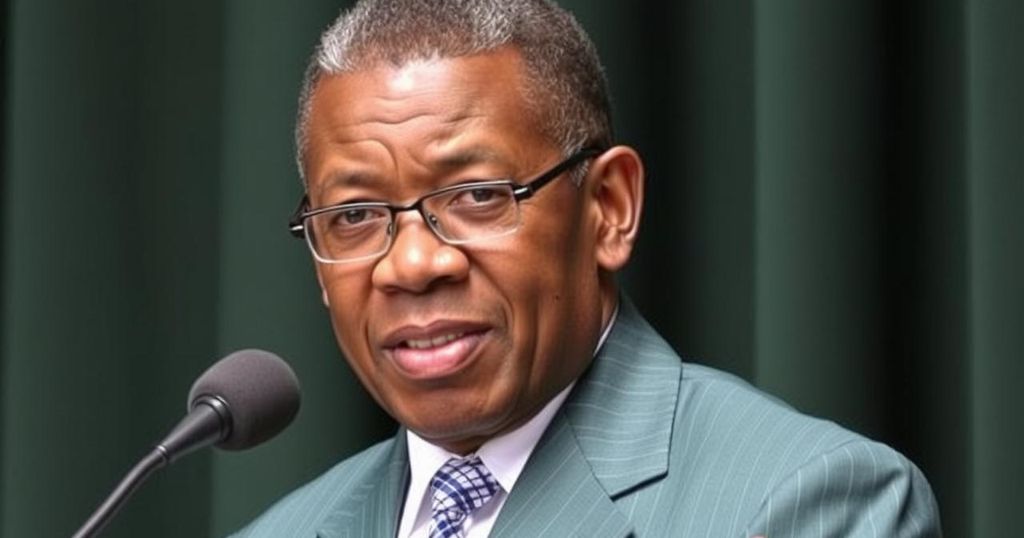Zambia’s Constitutional Court has barred former President Edgar Lungu from running for re-election in 2026, ruling that he has already served the maximum two terms allowed by the Constitution. The decision confirms Lungu’s political ineligibility following a nomination by the opposition for the upcoming elections, reflecting ongoing legal and political challenges since his defeat in 2021.
The Constitutional Court of Zambia has ruled that former President Edgar Lungu is ineligible to run for re-election in 2026. This ruling confirms that Lungu has served the maximum two terms allowed by the Zambian Constitution. Lungu’s initial election in January 2015 was to complete the term of his predecessor who passed away, a situation he argued should not count as a full term. However, the court maintained that this election constituted one of his two terms, thereby disqualifying him from future presidential candidacy. Last month, Lungu had been nominated as the opposition Tonse Alliance’s candidate for the upcoming elections, but this recent ruling prevented such a political comeback. The Zambian government welcomed the court’s decision, indicating that it clarifies the legal context for elections moving forward and reinforces democratic principles.
The ruling against Edgar Lungu arises in the context of recent political dynamics in Zambia, where the former president lost the presidency to Hakainde Hichilema in 2021. Lungu had faced significant political and legal challenges since then, including the withdrawal of his retirement benefits by the ruling government and allegations of fraud against members of his administration. The Zambian Constitution was amended following the death of former President Michael Sata to ensure a smooth transition of power, automatically granting the vice-president the presidency in such circumstances. This case also highlights ongoing debates over judicial independence and the legal framework governing electoral candidacy in Zambia.
The Constitutional Court’s decision to bar Edgar Lungu from seeking re-election confirms his previous status as a two-term president, challenging his supporters’ hopes for his return to power. The ruling is significant not only for Lungu but for the broader political landscape in Zambia as it sets important precedents for future elections and illustrates the government’s intent to maintain electoral integrity. As Zambia prepares for the 2026 elections, the implications of this decision will shape both the political strategies of parties and the prospects for a competitive electoral environment.
Original Source: www.bbc.com







